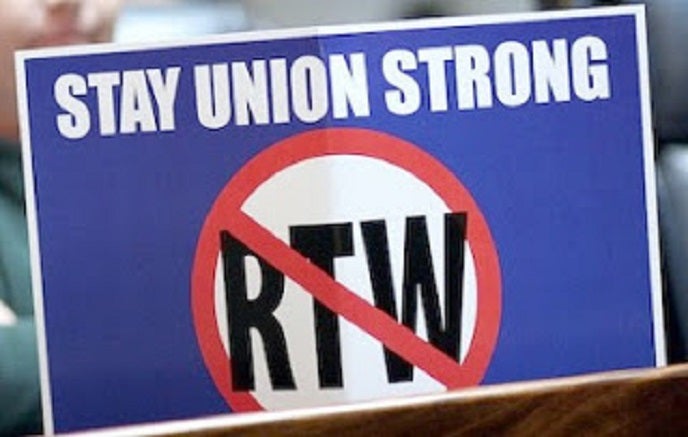Uncategorized
Voters Hold Power to Defeat RTW Efforts

The fight against big business and their corporate cronies who want to curtail the rights of workers to collectively bargain in this country is never-ending. But it is one that everyday Americans can influence.
The most direct example is in Virginia, where a constitutional amendment will be on the November ballot that would further enshrine so-called right to work (RTW) as the standard in the Old Dominion. RTW is already the law there, but making it part of the state constitution would make it more difficult to repeal in the future.
This sure seems like a waste of time, if it weren’t for the reality that Virginia is growing more Democratic each year. Conservatives and their big business buddies might see this as a chance to throw up additional hurdles on the way out of power.
In Kentucky, meanwhile, Gov. Matt Bevin is looking to take advantage of the inverse power change. The Tea Party governor wants to push though RTW as part of his legislative agenda for next year. He contends doing so would help the state’s economy.
Someone might want to let him know, however, that Kentucky businesses are doing pretty well under their current set up. In fact, business creation grew in the Bluegrass State by 6.1 percent in 2013, the second highest rate in the nation.
There is also talk on the national stage that RTW could make an appearance. A certain reality star-turned-politician has mentioned such an idea could be good for this country.
Well, since these candidates and lawmakers haven’t been listening to the Teamsters, it is now left to hard-working Americans to digest some facts — those living in RTW states have a higher poverty rate than those in ones that support collective bargaining. In fact, nine of the 10 highest poverty states are RTW.
That, in part, is attributable to lower salaries and benefits. Those with no rights at work make almost $1,500 a year less. They are also less likely to receive employer-based health insurance or pensions as well.
RTW needs to be called out for what it is – a corporate-fueled attack on everyday people who are just trying to earn a living to support their families. If workers show up on Election Day, however, they can stop it.